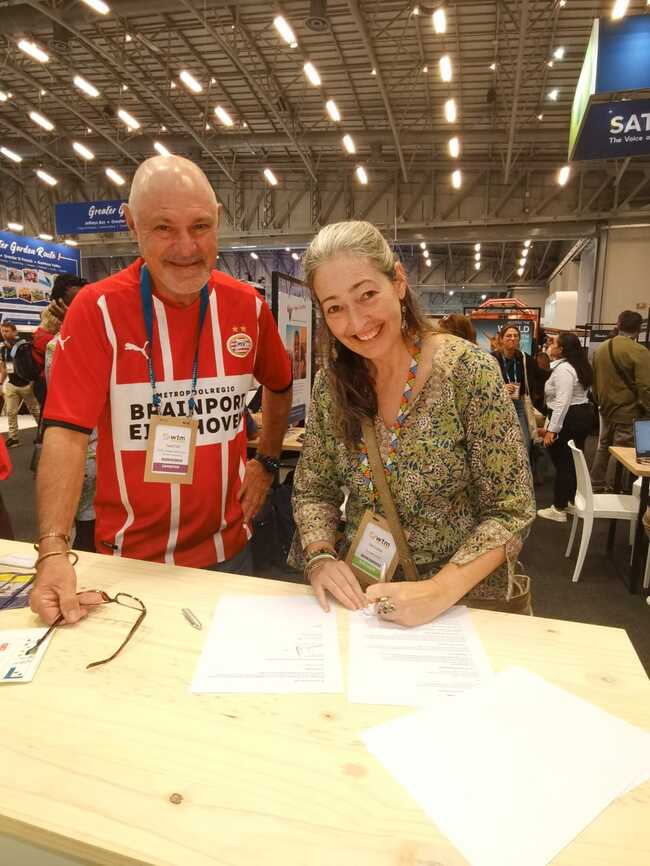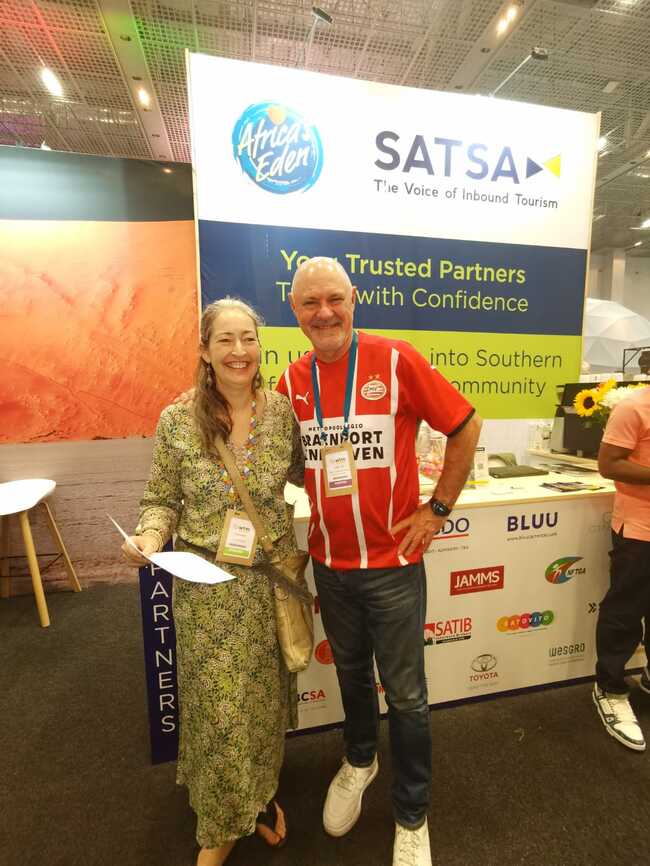SATSA and Fair Trade Tourism cement their partnership at WTM Africa 2025

The partnership between SATSA, the voice of inbound tourism in Southern Africa, and Fair Trade Tourism (FTT) was officially signed at WTM Africa 2025. The collaboration aims to provide practical support to tourism businesses navigating sustainability expectations, particularly in light of changing regulations and growing traveller demand for responsible experiences.
Rachel Nxele, Vice Chairperson of SATSA, confirmed that the association will be working closely with Fair Trade Tourism to help its members better position themselves within the responsible tourism space. “Our members didn’t know where to start with new regulations,” she said. “This partnership is our greatest point of departure for a collaborative approach so we all sing from the same hymn sheet.”
The support will take shape through a series of webinars led by FTT, offering tangible advice on how operators can incorporate responsible practices into their business models in ways that resonate with both regulators and travellers.
Lisa Scriven from Fair Trade Tourism welcomed SATSA’s proactive stance: “We work in a competitive industry. It’s important when we can step back and collaborate in areas that benefit the destination. SATSA is one of the region’s most influential associations, so this alliance opens real opportunities for businesses ready to make meaningful change.”
Joining forces as part of this broader initiative is regional collaboration platform Africa’s Eden, which will provide marketing support aimed at amplifying stories around responsible tourism success across Southern Africa.
Kim Barnett, Africa Eden's Chief Marketing Officer, noted that stronger regional alignment is essential: “Very few travellers come to just one country; that's where our strength lies as a collective destination. We want to grow awareness through subtle but strategic marketing that supports sustainable development across borders.”
Barnett also emphasised the need for consistency in messaging: while regional cooperation is vital, countries must still celebrate their unique offerings.
While environmental sustainability remains important globally, Nxele argued that South African tourism has an opportunity, and responsibility, to highlight its social strengths more assertively.
“We take our social context more seriously than solar panels,” she said. “It starts with understanding what we're already doing well, from community-led initiatives to cultural experiences, and using those assets as our foundation."
Nxele added that South African destinations often underplay their most distinctive advantage: the people behind the experiences. She called on industry players not just to promote landmarks or luxury but also Ubuntu-driven storytelling.
Despite rising demand from international travellers for authentic local encounters, from food tours and craft workshops through to community homestays, the panel acknowledged an ongoing disconnect between interest and access.
This partnership signals an important shift toward cooperative problem-solving across sectors, combining policy guidance, business tools, marketing reach, and practical training, all designed to future-proof Southern African tourism through shared responsibility rather than isolated effort.
You can find the partnership announcement here.






















